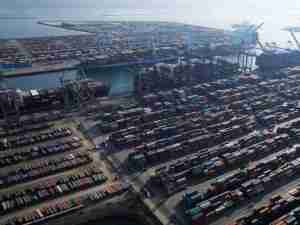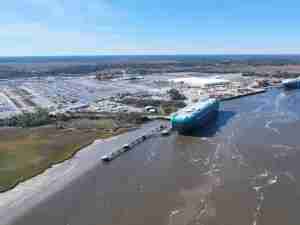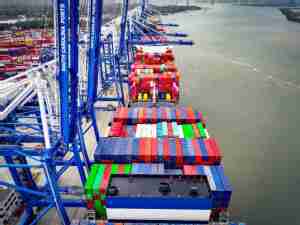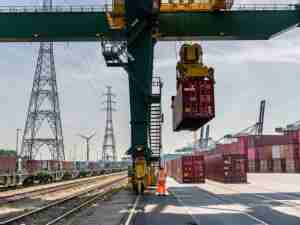It was a measure of the canal's place in Egypt's economy, and the world's, that army chief Abdel Fattah al-Sisi explained the military deployment ordered by President Mohamed Mursi in terms primarily of protecting a waterway he called a "vital strategic interest" - it handles about a tenth of all global trade by sea.
As the United States, sponsor of the armed forces, sounded an alarm, the Egyptian admiral who heads the state's Suez Canal Authority was completing a symbolic sail along its 192 km (120 miles) between Port Said on the Mediterranean and Suez on the Red Sea. "Traffic," he said, "is 100 percent safe".
Still bringing in over $5 billion a year in hard-currency tolls - more than two percent of national income - while unrest since the fall of Hosni Mubarak has hobbled tourism and undermined the pound, the canal has been generating massive income for Egypt since it was nationalised in 1956.
After the violence that has killed at least 52 people in the past week, mainly in Port Said and Suez, at either end of the canal, the authorities are keen to keep it that way, all too aware of past closures caused by war.
"The army's deployment in the two provinces of Port Said and Suez aims to protect the vital, strategic interests of the state, foremost among them the Suez Canal, which we will not allow to come to harm," General Sisi said.
The canal's managers issued a statement to reassure the owners of the 17,000 vessels that passed through last year carrying a record 740 million tonnes of cargo:
"In a strong, pacifying message to the world maritime traffic, Admiral Mohab Mameesh, chairman of the Suez Canal Authority, boarded two passing ships in the Canal for two days successively to assure that the traffic of ships in the Canal is 100 percent safe," the agency's English-language statement read.
The world's trading powers are also looking on anxiously, knowing that the cost of sending goods from Asia to Europe via South Africa would be a drain on a struggling economic recovery.
For now, at least, most shipping companies assume trouble will remain on shore and not trouble the canal's management:
"We feel pretty confident about Suez," Commodore Christopher Rynd, senior captain of Britain's Cunard line and master of the liner Queen Mary 2, told Reuters after passing through last week, before the riots. "It's simply so important to Egypt."
Last year, the volume of cargo transported exceeded levels set in 2008, shortly before the global financial crash and rise of Somali pirates reduced the number of ships passing Suez.
Open to All
Built by French engineers and opened in 1869, the canal is governed by an international treaty, the 1888 Convention of Constantinople, by which its operators are bound to keep it open to civilian or military vessels in times of peace or war. The reality, however, has often been rather more complex.
In World War Two, Egypt's colonial master Britain denied access to Germany and its allies.
Gamal Abdel Nasser, the army officer who broke from colonial control, nationalised the waterway for Egypt in 1956. Britain and France attacked the canal zone with the support of Israel. Though U.S. pressure forced the invaders to withdraw, sunk and scuttled ships blocked the passage for several months.
The longest closure - eight years - was to come a decade later when Israel invaded the Sinai peninsula in 1967, turning the canal into a frontline buffer until 1975.
The need to maintain Egypt's 1979 peace treaty with Israel and keep the canal open, experts say, helped push the United States towards building a much closer relationship with those in power in Cairo over succeeding decades. Central to that was a colossal aid package direct to Egypt's military, widely seen as a major factor in helping Mubarak stay in power until 2011.
"The U.S. government does










